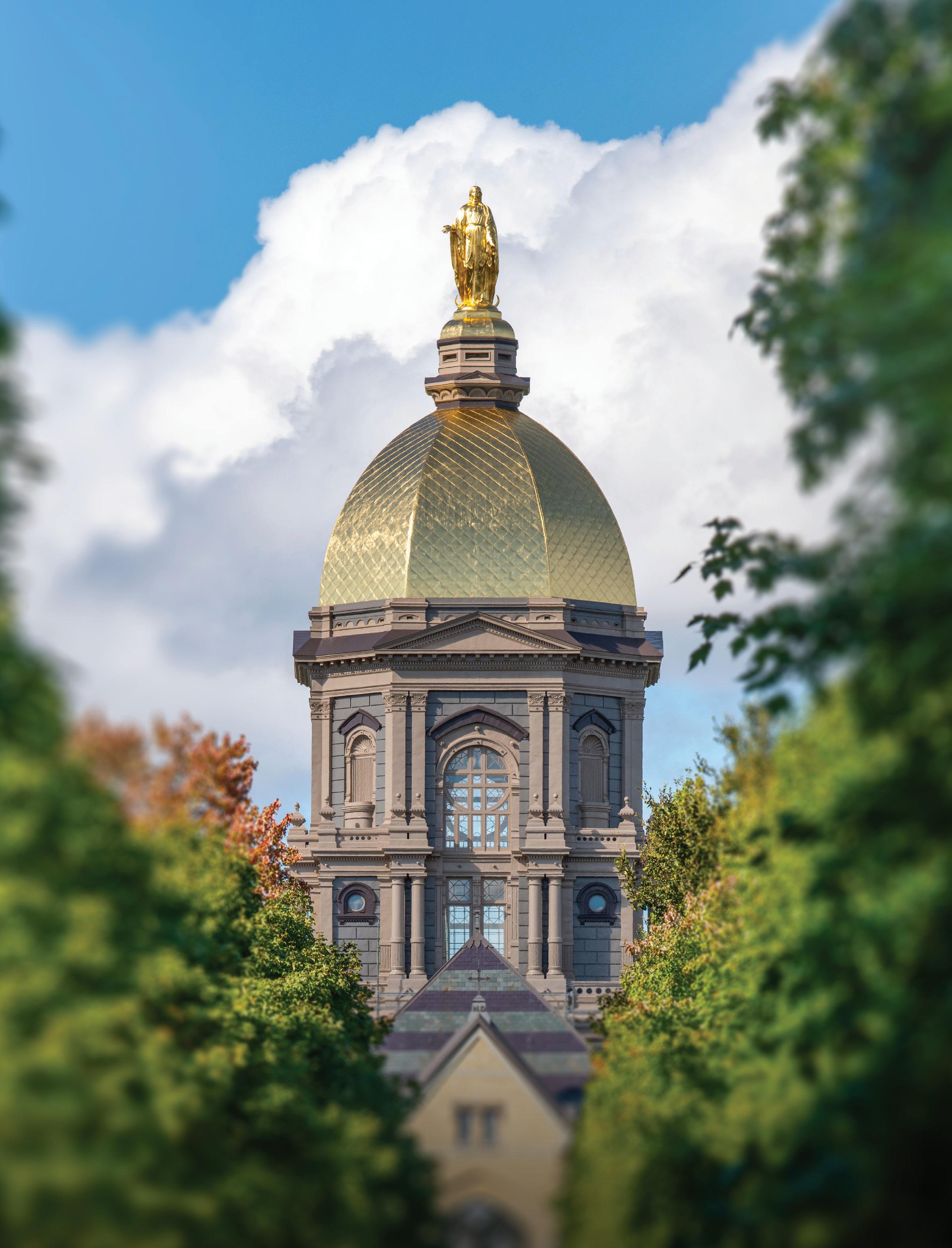
EDUCATING A DIFFERENT KIND OF LAWYER


EDUCATING A DIFFERENT KIND OF LAWYER
Law School, we see the law as more than just a profession.
We encourage students to view the practice of law as a service to others, to explore the moral and ethical dimensions of the law, and to discover their unique roles in furthering the cause of justice.
As an eminent law school at the heart of a great Catholic university, our view of legal education is informed and inspired by our religious tradition. It’s a tradition that spans the globe, embraces people of all backgrounds, and illustrates the possibilities of dialogue between reason and faith.
With rigorous academics, attentive faculty, and a close-knit community, Notre Dame is a place where generations of lawyers have found their callings. They have learned to be counselors to those in need, to be voices for the voiceless, and to use their talents to uphold human dignity.
They have learned what it means to be a different kind of lawyer.



Notre Dame Law School’s curriculum—a mix of analytical training in the classroom and handson experiences in externships, clinics, skills courses, and immersion programs—is designed to provide students with the foundation they need to practice law in a diverse, global economy. The Law School is noted for its particular strength in constitutional law, ethics, law and religion, and international law.
Students pursuing a J.D. have the option of specializing in a particular area of the law by following one of our programs of study. Some students choose to pair their J.D. with a second Notre Dame degree, such as an MBA or a Master of Global Affairs, through one of our dual-degree programs. Law students who do not pursue a dual degree are allowed to take 9 credit hours in Notre Dame’s other graduate programs.



“I can’t stress enough what a special place the University of Notre Dame is and the
role the Law
School
plays within
it.
“Our mission statement calls us to train a different kind of lawyer, one that has an impact for good, one who is a force for good. As the needs of our society call for ethically and morally guided lawyers and leaders, Notre Dame will continue to answer that call.”

Since arriving at Notre Dame Law School in 2019, Dean G. Marcus Cole has overseen the establishment of three new clinics including the Lindsay and Matt Moroun Religious Liberty Clinic and the Exoneration Justice Clinic, and has expanded international programs through his Global Lawyering Initiative. He has also seen the enrollment of the most diverse classes in the Law School’s history.
We aim to enroll no more than 185 students in each first-year class. These small class sizes ensure that our expert faculty are accessible to students.
Notre Dame Law Review
Journal of International & Comparative Law
Journal of Law, Ethics & Public Policy Journal of Legislation
Journal on Emerging Technologies
No class sections, No class rankings
These organizations enable students to plan their own programming, network, and build community with others who share common interests.
We do not divide our student body into sections, and we do not rank students by GPA. These are two intentional ways that Notre Dame Law School fosters a sense of community where classmates know each other and learn together in a collegial environment.

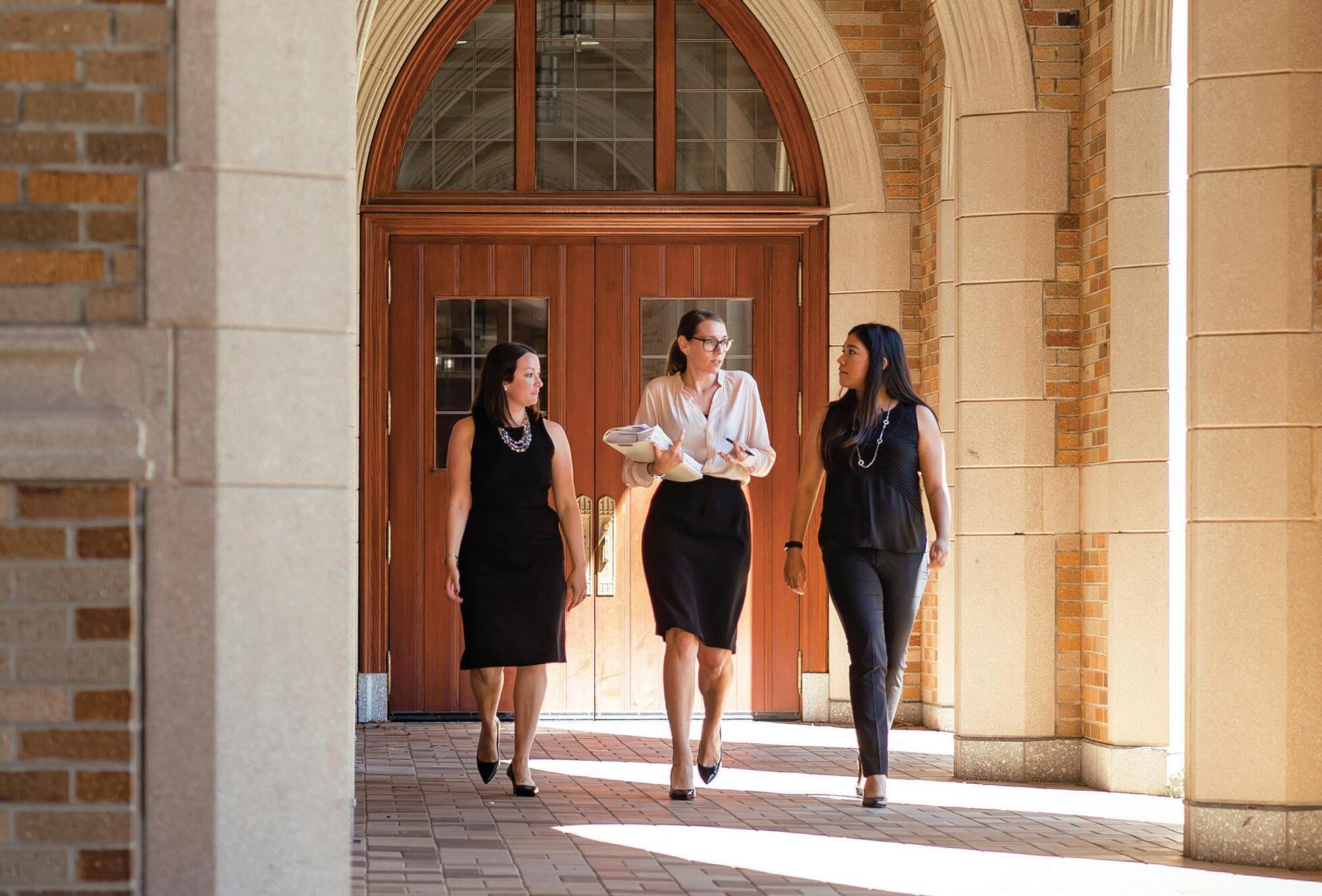
Notre Dame Law School’s faculty members are renowned scholars who are respected within academia and the legal field.
Many of our professors have served as judicial clerks, including 14 at the US Supreme Court. One longtime faculty member, Amy Coney Barrett, was appointed as a Supreme Court justice in 2020. Other professors came to academia with

FACULTY HAVE BEEN APPOINTED TO SERVE IN
The White House
US Department of Justice
US State Department
US Treasury Department
Meta Oversight Board
years of experience in law firms and businesses that enable them to offer valuable insights in the classroom. The Law School’s small class sizes mean that our professors get to know students on an individual level. Our faculty recognize that educating a different kind of lawyer requires oneon-one attention as students discern their unique roles in furthering the cause of justice.
Inter-American Commission on Human Rights
United Nations
Venice Commission of the Council of Europe
The Vatican
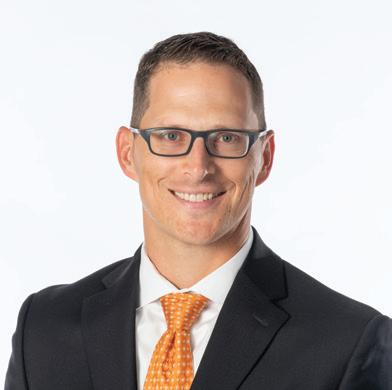
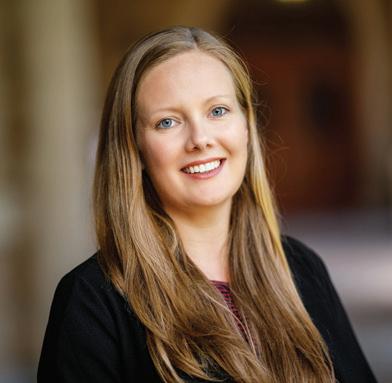


Randy Kozel
Professor and Associate Dean Randy Kozel, who directs the Notre Dame Program on Constitutional Structure, served as a law clerk for US Supreme Court Justice Anthony M. Kennedy.
50+ FULL-TIME FACULTY
14 FORMER SUPREME COURT CLERKS
*Princeton Review ranking for best professors
Emily Bremer
Professor Emily Bremer specializes in administrative law and civil procedure, and serves as a public member of the Administrative Conference of the United States.
Michael Addo
Professor Michael Addo, director of the ND London Law Programme, has contributed his expertise to United Nations projects in the areas of business and human rights.
Diane Desierto
Professor Diane Desierto, who directs Notre Dame Law School’s Global Human Rights Clinic, is a member and former chair-rapporteur of the Expert Group of the United Nations Working Group on the Right to Development.
#5 BEST PROFESSORS*
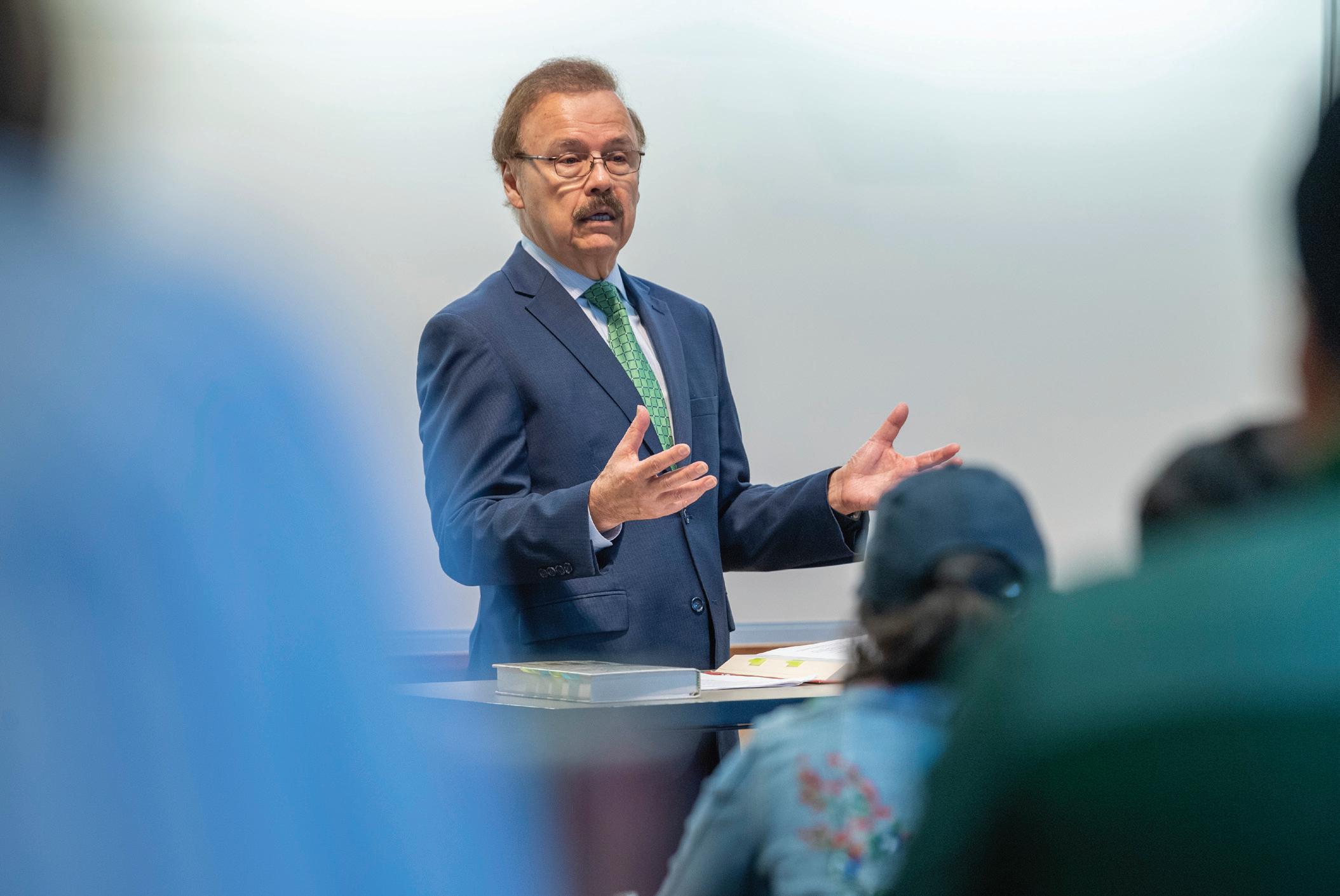
Members of the Notre Dame Law School faculty are diverse in terms of their backgrounds, philosophies, and scholarly interests. Faculty expertise covers all areas of the law.
Many faculty members hold doctoral degrees in other subjects that relate to their areas of
legal expertise. This interdisciplinary approach is reflected in the Law School’s six research programs, which enable our professors to concentrate on their research, collaborate with other scholars throughout the world, and host conferences and lectures. The programs also provide opportunities for students to be directly involved in research projects.

With small classes and a 7:1 student-faculty ratio, our professors are able to get to know students on an individual level. Also, many faculty members live near Notre Dame’s campus and are more accessible than they would be in a major metropolitan area.
It’s not unusual for faculty members to help students make connections with other lawyers, judges, and business professionals, and provide guidance to students about pursuing careers, specific areas of practice, and clerkships.


“I have been impressed and welcomed by the Notre Dame Law professors and staff from day one. Being taught by professors that are people first and bring their passion to class every day is inspiring and keeps very tough school work engaging and exciting.”
Class of 2025
Through our clinics, students gain hands-on experience advocating for individuals and families, making a meaningful impact locally, nationally, and internationally, while strengthening their commitment to social justice.

Experiential learning—which includes opportunities in clinics, externships, skills courses, and immersion programs—is a core component of the Notre Dame Law School curriculum. These programs complement the analytical training of the classroom by enabling students to develop practical skills and explore potential career paths.
The Law School offers a wide variety of experiential learning opportunities on campus, in the greater South Bend community, and in London, Chicago, and Washington, DC. The Law School operates seven clinics that function as teaching law offices where 2Ls and 3Ls work on real cases under the close supervision of faculty.
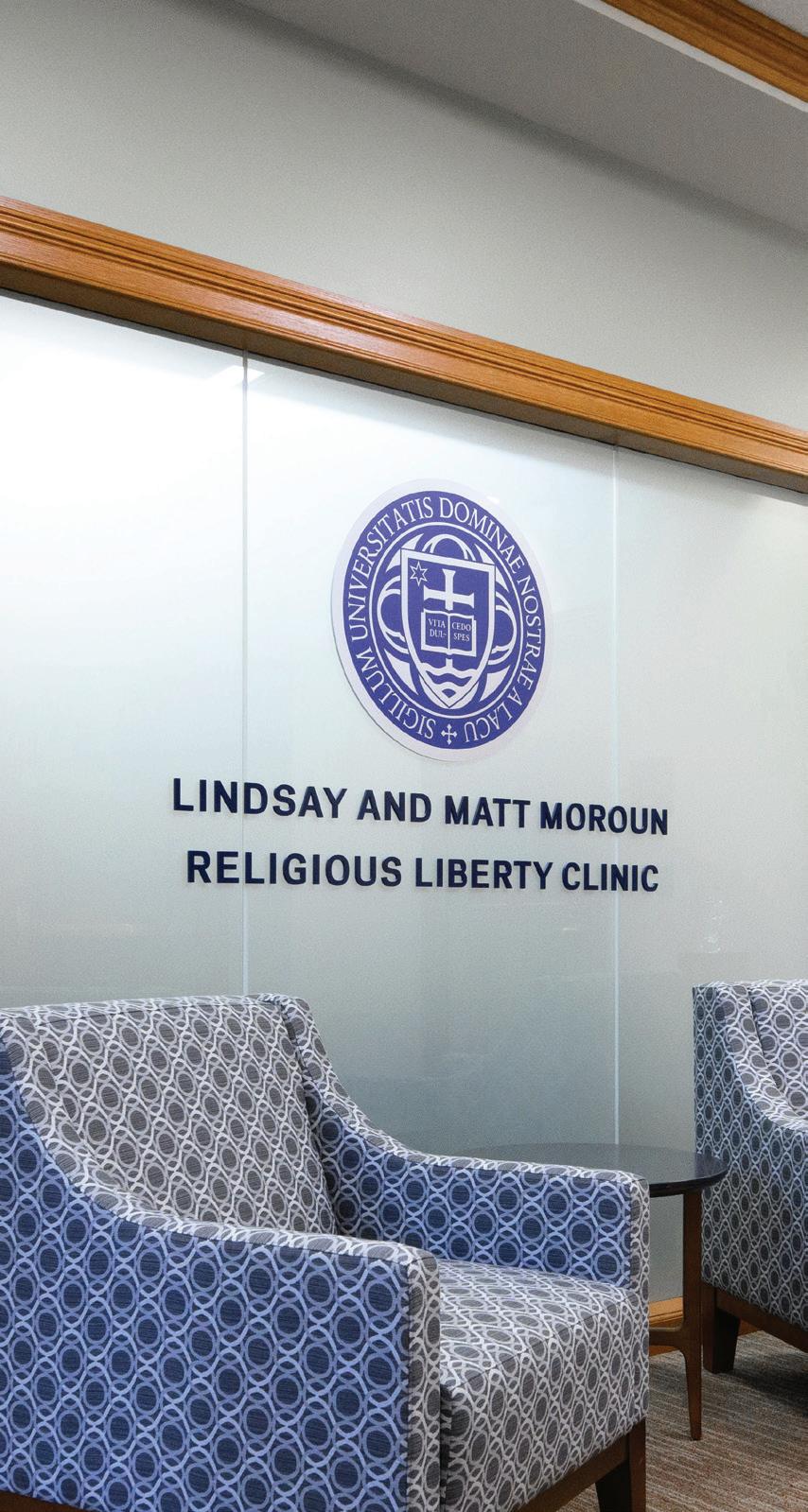
APPLIED MEDIATION CLINIC
COMMUNITY DEVELOPMENT CLINIC

EVICTION CLINIC
EXONERATION JUSTICE CLINIC
GLOBAL HUMAN RIGHTS CLINIC
LINDSAY AND MATT MOROUN RELIGIOUS LIBERTY CLINIC
SPECIAL EDUCATION CLINIC

EXPERIENTIAL COURSES
“I think the most meaningful part of the Eviction Clinic for me has just simply been helping others. At Notre Dame specifically, we pride ourselves on being what we call a different kind of lawyer. I think ultimately that comes down to the service of others.”
Class of 2024
MOLLY BALDOCK Ashland, Kentucky

Notre Dame Law students hone their lawyering skills through courses that require them to practice the crafts of advocacy and legal writing under simulated conditions. The Law School has
long been a national leader in trial advocacy training in particular.
Most students at Notre Dame Law School participate in at least one trial advocacy, appellate advocacy, or transactional skills course.
CORPORATE COUNSEL
IMMIGRATION
INTERCOLLEGIATE ATHLETICS
JUDICIAL

SEVENTH CIRCUIT PRACTICE APPALACHIA
Notre Dame Law School teaches students to think like lawyers and practice the skills that are important for success in the profession. This education includes getting out of the classroom and working on cases with real clients, lawyers, and judges.
The Law School’s broad array of externships enables students to “try out” virtually any area of law. Students may participate in externships during the academic year at nonprofit organizations, government agencies, judicial chambers, and corporate counsel offices in the South Bend area, in Chicago and Washington, DC, and while studying abroad in London. Students can even create their own externships through the Public Interest Externship.
TRIAL ADVOCACY
Practice trial skills through exercises such as depositions and simulated trials.
TRANSACTIONAL SKILLS
Learn to draft contracts and protect clients’ designs.
APPELLATE ADVOCACY SKILLS
Practice brief writing and learn how to argue a case at the appellate level.
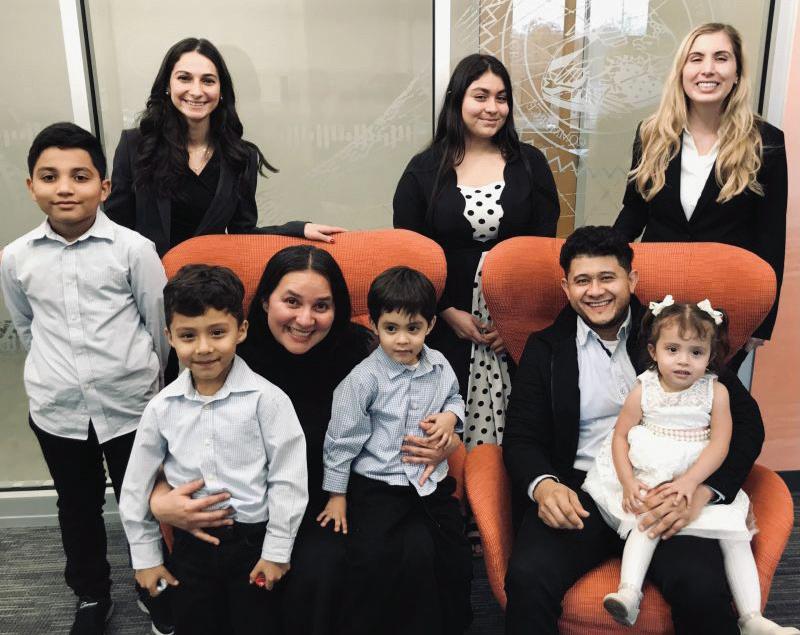

UNIVERSAL LAWYERING SKILLS
Develop skills that lawyers need in all areas of the legal profession.
Students provide vital immigration legal services to low-income immigrants through the National Immigrant Justice Center externship, gaining hands-on experience in asylum and immigration court cases. Over 100 students have worked on numerous cases with about a 90% approval rate.
UNDERGRADUATE COLLEGES AND UNIVERSITIES REPRESENTED IN THE 1L CLASS
Arizona State University
Auburn University Barnard College—Columbia University Benedictine College
Bethel University (MN) Boston College
Boston University
Butler University California State University, Northridge
University College of the Holy Cross College of William and Mary
DePaul University
Dr. Harisingh Gour
STATEMENT OF DIGNITY, SOLIDARITY, AND SUBSIDIARITY
Notre Dame Law School is a Catholic law school founded upon the Gospel of our Lord, Jesus Christ, and the principle that each and every person is created in the image and likeness of God. This means that every member of the Notre Dame Law School community is worthy of and entitled to the respect demanded by their human dignity. We are a community in solidarity with each other. As members of this community, we undertake the responsibility to create a welcoming and supportive environment for people of all backgrounds and identities, inclusive of every race, sex, ethnicity, religion, creed, national origin, or sexual orientation. Under the principle of subsidiarity, we acknowledge that each of us has the individual responsibility to provide care and support for each person, and to do our part to ensure that every member of our community experiences the loving creative power of
every student is empowered to thrive.
LISTEN TO THE WELCOME TABLE PODCAST
Students in the Notre Dame London Law Programme take classes in Fischer Hall, located next to Trafalgar Square in central London.

Notre Dame Law School has been a leader in international legal education since establishing the Notre Dame London Law Programme in 1968. The one-of-a-kind program enables students to spend a semester or a full year at Notre Dame’s London campus, learning from premier British and European legal scholars.

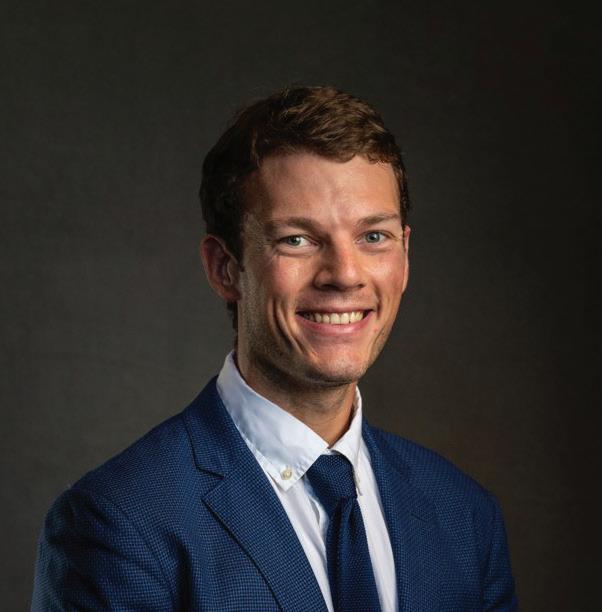
In addition to London, ND Law students may study in one of our exchange programs at top law schools in nine countries.
International opportunities are also available in the summer with our Dublin Honor Scholars Program and Hamburg Honor Scholars Program.
“I have always wanted to work internationally, so I jumped at the opportunity to study in the Notre Dame London Law Programme. I met some of my closest friends while I was on a rowing team in London and had so many academic and travel adventures. The opportunity to meet U.S. lawyers abroad is unmatched.”
Class of 2025
CARSON SCHOEN Chicago, Illinois
Students have many opportunities to network with firms and ND alumni throughout the year.

Every student brings unique experiences and passions to law school, and each aspiring lawyer has a unique vision of professional success. Notre Dame Law School is committed to preparing students for their individual career paths. Our alumni are leaders in big law firms and corporate headquarters as well as government agencies and nonprofit organizations across the United States and abroad.
The Law School’s Career Development Office is staffed with experienced lawyers who are dedicated to helping students achieve their professional goals. From offering one-on-one advising and resume feedback to coordinating interview programs and networking opportunities with alumni, the CDO provides a full slate of services to assist students.
More than 18 percent of our 2023 graduates entered federal clerkships upon graduation, the fourth best rate among American law schools.
In the years following their graduation, individuals from our 2019–23 classes have obtained at least 250 clerkships in federal, state, and local courts across the United States, including the US Supreme Court.
CLASS OF 2023 EMPLOYMENT 10 months after graduation
Notre Dame has a history of encouraging its graduates to use their education for the public good—it’s a responsibility that flows directly from the University’s Catholic mission.
ND Law’s Loan Repayment Assistance Program (LRAP) covers graduates in public interest jobs with salaries as high as $110,000. The program is designed to enable our alumni in those fields to achieve total forgiveness of their federal student loans in less than 10 years with minimal out-of-pocket payments.

One of the benefits of earning a degree from Notre Dame Law School is that graduates become members of a vibrant alumni community.
Notre Dame Lawyer Committees, which organize events and service projects, are active in more than 30 major cities. These loyal alumni are eager to assist students and new graduates with networking and mentorship as they start their careers.
The Law School organizes networking opportunities throughout the academic year, during winter break, and over the summer. These events take place on campus and across the country to aid students in their nationwide job searches.





students



The University of Notre Dame is widely regarded as having one of America’s most beautiful college campuses. The Law School’s location in the heart of campus contributes to the strong sense of community here as law students are able to participate fully in the life of the University.
Notre Dame is both Catholic and catholic. The first word refers to the Catholic Church and the faith that drives Notre Dame’s mission to be a force for good. The lowercase word means universal and describes how Notre Dame, as a great university, embraces people of all backgrounds, faiths, and viewpoints.
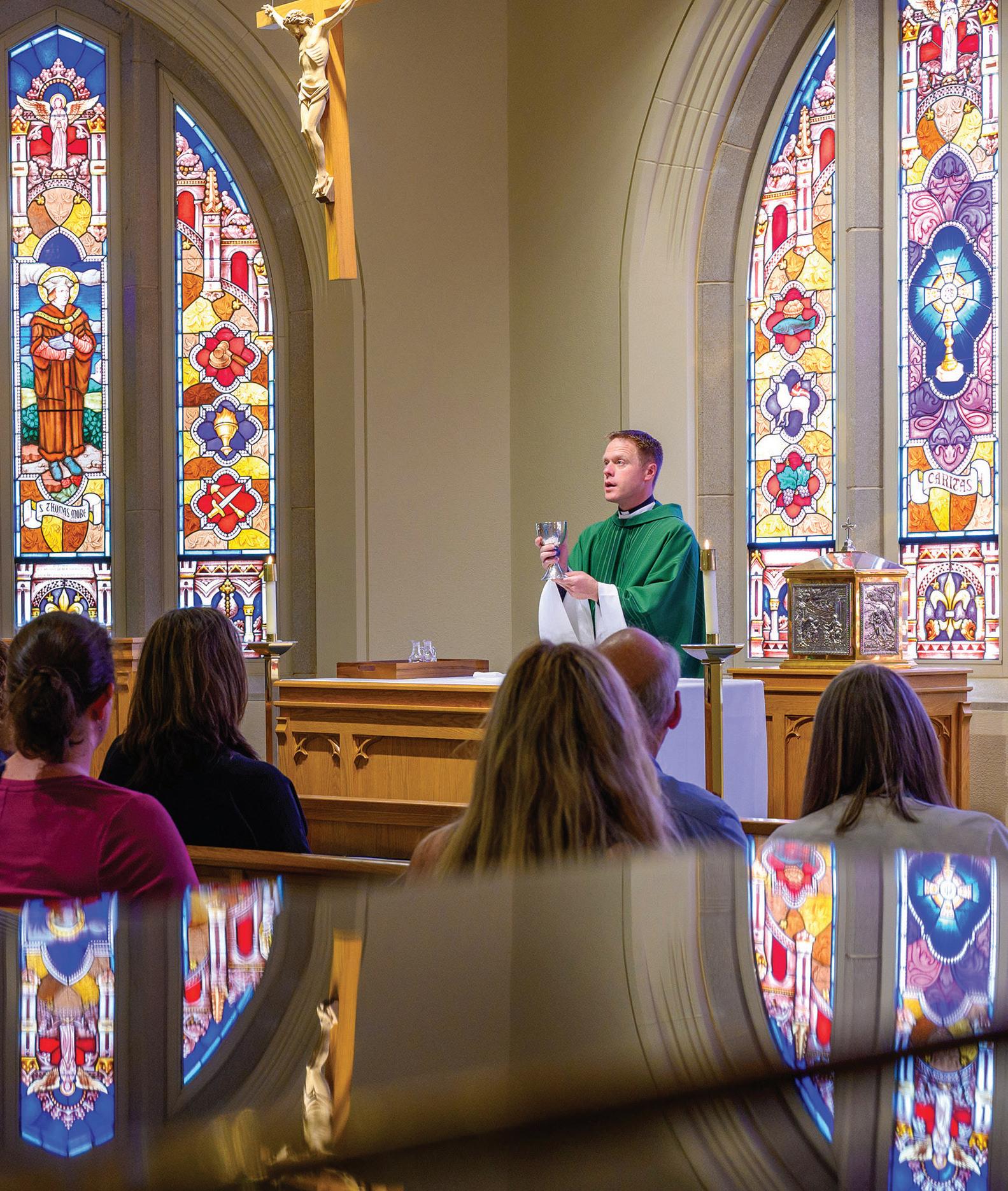
“The Notre Dame community is a special place. It takes coming here and experiencing it for anybody to understand that you can be a vessel for God through helping people, helping the community, and helping society.”




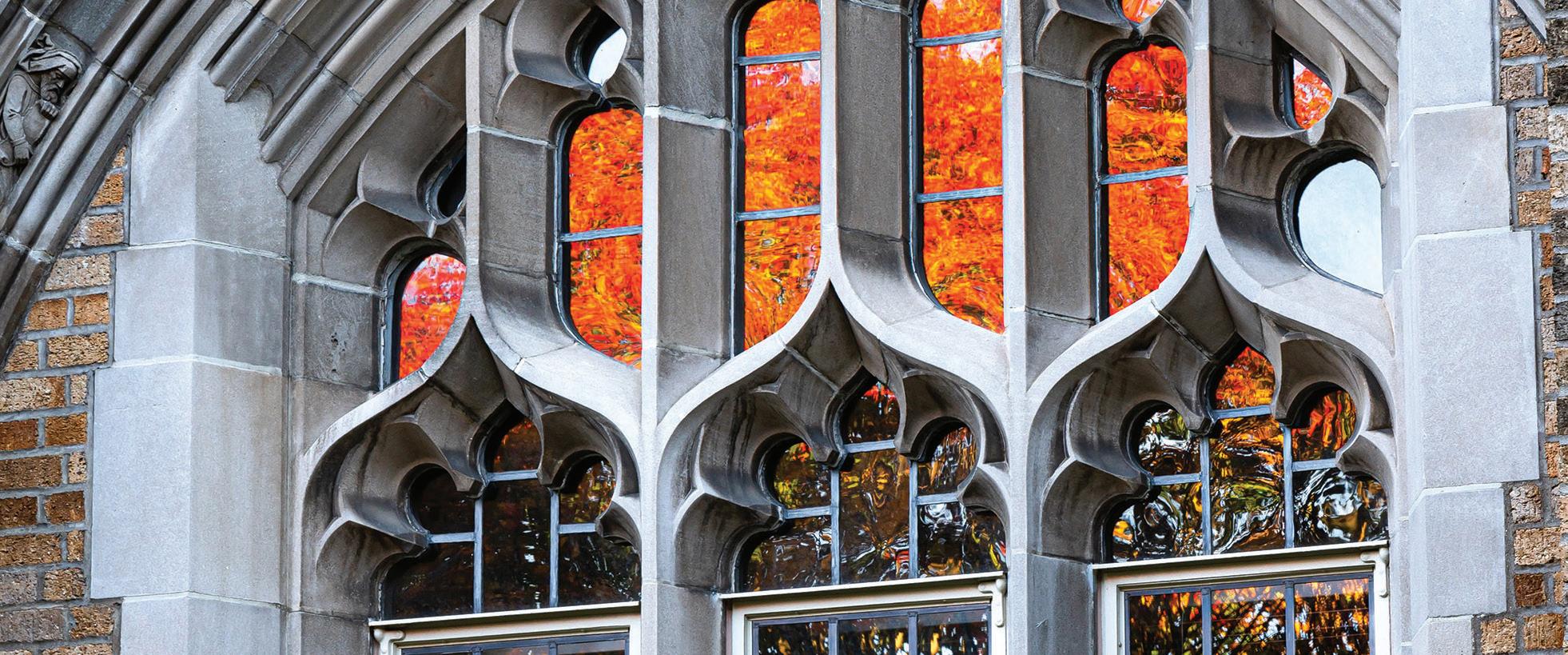


The University of Notre Dame is located right next to South Bend, Indiana—a diverse city that’s big enough to provide everything you need without the traffic and high costs of a major metropolitan area.
Notre Dame offers on-campus graduate student housing that is a 10- to 15-minute walk from the Law School. Many off-campus housing options are available nearby in South Bend and the surrounding community. Living in close proximity to campus and to each other

makes it easy for law students to spend time together, whether that time is spent studying or having fun.
Downtown South Bend and several other city neighborhoods have been undergoing a renaissance in recent years. Private developers have renovated several historic buildings, adding more restaurants and hundreds of apartments to the city center. The city is also directing more attention to the St. Joseph River by investing in a riverside trail system and upgrading waterfront parks.

102k
SOUTH BEND’S POPULATION
800k
POPULATION OF MULTI-COUNTY “MICHIANA” REGION



law.nd.edu/apply law.nd.edu/visit
You may apply to Notre Dame Law School via LSAC beginning September 1.
Our Admissions Committee seeks to enroll a talented, diverse class that will help Notre Dame Law School achieve its mission of educating lawyers who serve the good of the human family. We evaluate applications in a holistic manner to identify those candidates whose academic talent, personal background, professional experiences, and points of view will ensure our community personifies the pursuit of excellence and leadership for the betterment of society.
Prospective students are invited to connect with our admissions staff and student ambassadors in-person or remotely.
On-campus visits include a class observation, an admissions information session, and a student-led tour of the Law School. Please check law.nd.edu/ visit for registration information and further details.
We look forward to meeting you!
OFFICE OF ADMISSIONS
1329 Biolchini Hall Notre Dame, IN 46556
574-631-6626
lawadmit@nd.edu law.nd.edu/admissions
APPLICATION DATES AND DEADLINES
SEPT. 1
Applications Accepted MARCH 15
Application Deadline
APPLICATION REQUIREMENTS
Application form
Bachelor’s degree in any discipline from an accredited college or university
LSAT or GRE
Personal statement
Resume Two letters of recommendation Why Notre Dame Law School?” essay*
*Recommended “ “
Different Kind of Lawyer” essay*
Notre Dame Law School
Office of Admissions 1329 Biolchini Hall Notre Dame, IN 46556
574-631-6626 lawadmit@nd.edu law.nd.edu/admissions
LAW.ND.EDU
OTHER IMPORTANT DATES DEC. 1
FAFSA Opens for Loan Eligibility FEB. 28
FAFSA Priority Deadline | ND Law’s Federal Code: 001840
IMPORTANT FEES
$75 Application Fee*
*Service and needbased fee waivers application available at law.nd.edu/waiver
$71,126 Tuition and Fees 2024–25
$25,990
Estimated Cost of Living 2024–25

NONDISCRIMINATION POLICY
Notre Dame is committed to building an inclusive community and welcomes all individuals. All prospective students are encouraged to read the University’s Spirit of Inclusion statement as well as the University’s policies for reporting discriminatory harassment at equity.nd.edu.
The full nondiscrimination policy may be viewed at law.nd.edu/nondiscrimination.